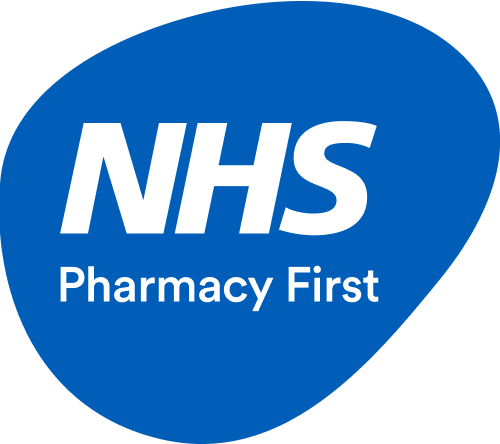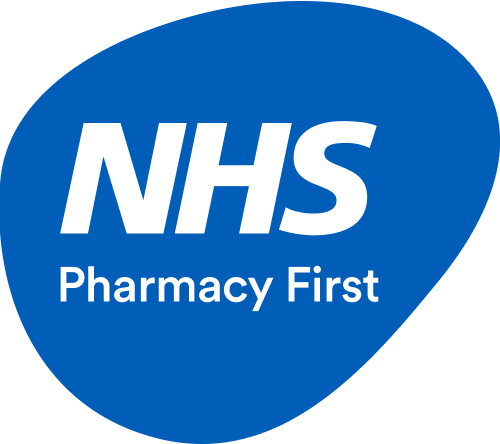
What to expect from your pharmacy consultation
Peer reviewed by Dr Colin Tidy, MRCGPAuthored by Victoria RawOriginally published 2 Sept 2025
- DownloadDownload
- Share
Pharmacy First is a service that encourages you to contact your pharmacist before booking a doctor’s appointment for minor health issues. While pharmacists can’t diagnose or treat every medical condition, they are trained to manage a range of minor illnesses and provide expert advice.
But what happens during a pharmacy consultation? We asked an expert to walk us through the process.
In this article:
Sponsored
Book a free online NHS Pharmacy First consultation
Through NHS Pharmacy First, My Local Surgery offers fast, free private online consultations with an NHS pharmacist for quick diagnosis and prescriptions for a range of minor illnesses.
They can help with common conditions under the NHS Pharmacy First scheme, with prescription medication, delivered for free.

Continue reading below
Who conducts a pharmacy consultation?
A pharmacy consultation is typically conducted by a qualified pharmacist, who has completed a four-year Master of Pharmacy (MPharm) degree. This is followed by a one-year foundation training placement and a final registration assessment to be eligible to practice.
Debbie Grayson, Pharmacist and Nutritional Therapist, Practice With Confidence, Greater Manchester, UK says that, in some instances, a consultation may be carried out by a registered pharmacy technician.
"These are health professionals who have undergone extensive training and are registered with the GPhC," she explains. "Examples of services they are authorised to provide include stopping smoking services."
Grayson adds that, beyond their in-depth knowledge of medicines and pharmacology, pharmacists are also trained to carry out general health assessments.
These include taking your:
Oxygen saturation.
Temperature.
Many pharmacists can also examine your ears, and some will check your blood sugar (glucose) levels as well.
"A pharmacist can use these readings, along with extensive questioning to determine whether you need a referral to your doctor, or emergency services," says Grayson.
"They can also assess whether your condition is something that can be managed with other measures - including over-the-counter medicine, or specific prescription medicine offered under the Pharmacy First scheme."
She adds that all consultations are conducted in accordance with the standards of pharmacy practice established by GPhC legislation.
What to expect from your pharmacy consultation
What happens during a pharmacy consultation?
Most pharmacy consultations last around 5-10 minutes. They may be longer, depending on the nature of your medical issue. They usually take place in a purpose-built consultation room to safeguard your privacy.
Grayson says that these rooms, though typically modest in size, provide comfortable seating for around 2-3 chairs, a desk, a computer, and often a sink for handwashing.
Common questions your pharmacist may ask
Your pharmacist will ask a number of open and closed questions to understand the nature of your issue.
"These questions include how long the issue has been going on, what you've tried so far, and they will also look to rule out any red flag symptoms," Grayson explains. "Red flag symptoms are those that suggest a more serious issue - such as unexplained bleeding or persistent pain. Where red flag symptoms are present this will usually result in a referral back to your doctor."
If your pharmacist recommends a course of treatment or medicine, they will also provide guidance on what to do if your symptoms don’t improve within a certain timeframe.
Grayson says: "This is often referred to as safety netting or signposting."
Continue reading below
What can a pharmacist check during a consultation?
Pharmacists are qualified to assess certain issues relating to your medicines.
According to Grayson, these include:
Side effects - identifying any unwanted or unexpected reactions to your medicine, and advising on how to manage them.
Dosage - ensuring you are taking the correct amount for safe and effective treatment.
Suitability - checking whether the medicine is right for you, considering your health condition and medical history.
Interactions - reviewing whether the medicine could interact with other medicines, supplements, or certain foods, which might affect how it works.
"Pharmacists are also able to advise on general health and wellbeing measures," Grayson says. "These include healthy eating, stopping smoking, and alcohol use."
She adds that following the launch of the Pharmacy First scheme, pharmacists can also advise on the management of a number of conditions and provide antibiotics where needed.
These include conditions such as:
Urinary tract infections (UTIs).
Skin conditions.
Sinusitis.
Shingles.
"Pharmacists are trained to diagnose minor ailments and recognise when symptoms may be the sign of a more serious condition," says Grayson. "These more serious conditions are diagnosed by your doctor once you have been signposted to them by your pharmacist."
What happens after a pharmacy consultation?
If the medicine you need is available, your pharmacist will provide it either free of charge through pharmacy services, or you can purchase it over the counter.
Grayson explains that your pharmacist will take notes during the consultation, and these notes are typically shared with your doctor to help with your ongoing care. If a referral to another specialist is needed, your pharmacist can assist with this according to local and national policies.
"In addition to managing minor ailments, pharmacies are well placed to provide advice on how to better manage health on a day to day basis," she says.
"Though treatment is not always needed, your pharmacist can provide you with some simple advice to help alongside, giving more detailed advice on how to proceed if the issue persists."
Patient picks for Medicine information

Treatment and medication
Book a Pharmacy First online consultation
by Thomas Andrew Porteus, MBCS

Treatment and medication
Making sure your medicine is safe at home
If you've ever rummaged through the back of your medicine cabinet for painkillers, you may find half-finished packs of tablets you took for a bad back some time ago, or a bottle medicine you opened a few weeks back. For #MedSafetyWeek we have a look at what you need to know about making sure your medications are safe and effective to take.
by Victoria Raw
Article history
The information on this page is peer reviewed by qualified clinicians.
Next review due: 3 Sept 2028
2 Sept 2025 | Originally published
Authored by:
Victoria RawPeer reviewed by
Dr Colin Tidy, MRCGP

Ask, share, connect.
Browse discussions, ask questions, and share experiences across hundreds of health topics.

Feeling unwell?
Assess your symptoms online for free